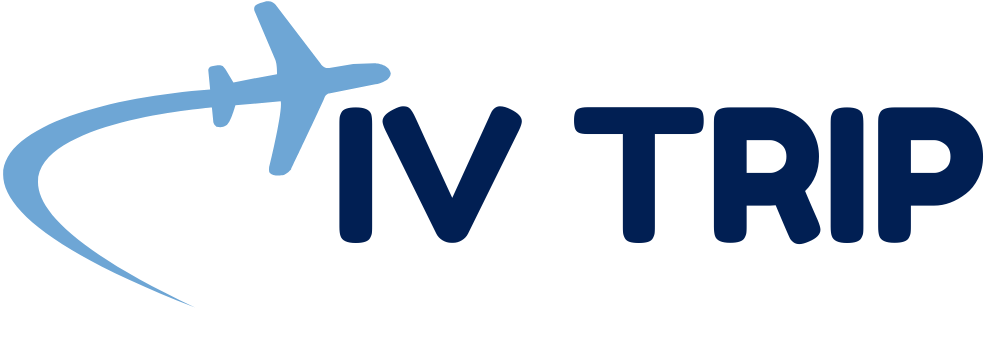Travel Data Management & Compliance in Software

Travel Data Management: Navigating Regulations in Travel Software
The travel industry handles vast amounts of personal data – from passenger names and passport numbers to itineraries and payment details. Travel data management is therefore critical: agencies must securely collect, store, and process customer information while complying with evolving privacy laws. With regulations like GDPR (EU), CCPA (California), and proposed Bangladesh data laws, travel software vendors must build robust protections into their systems. Modern cloud-based travel platforms (e.g., Implevista’s IV Trip) centralize bookings, customer profiles, and payments in one place, making regulatory compliance and security non-negotiable. In this guide, we examine key privacy requirements for travel software and best practices for protecting traveler data.
What is Data Protection and Why is it Important?
Data protection means safeguarding personal information from misuse, theft, or unauthorized access. In practice, this involves both technical controls (encryption, firewalls, backups) and legal policies (consent forms, data retention limits). For example, the GDPR requires companies to collect personal data only for specific, lawful purposes and to obtain explicit consent before processing it. Once data is no longer needed, it must be deleted or anonymized. Effective data protection preserves confidentiality (keeping data private), integrity (preventing tampering), and availability (keeping systems running).
Protecting data is crucial because breaches are costly and damage trust. Today’s regulations impose heavy penalties: violations of GDPR can incur fines up to €20 million or 4% of global turnover. And similar strict penalties are proposed in Bangladesh. Moreover, security incidents destroy customer confidence – studies show about 87% of travellers will stop using a service after a data breach. In short, data protection builds trust and avoids fines. Encrypting traveler profiles, booking histories, and payment details keeps this sensitive data safe. For travel software, strong security (e.g., requiring multi-factor login, end-to-end encryption, and audit logging) is now an essential feature – not an afterthought.

Travel Data Management in the Travel Industry
Travel data management refers to how agencies and platforms collect, organize, and use travel-related data. This includes personal data (names, IDs, contact details), itinerary data (flights, hotels, transport), financial data (credit cards, billing), location data (GPS check-ins), and preferences (room types, meal choices). All these data streams must be integrated into agency systems to power bookings, customer service, and analytics. For example, an online booking engine might pull flight schedules, hotel availability, and pricing together with the traveler’s loyalty profile and stored payment method.
Managing travel data is especially challenging because it often spans multiple systems and countries. A single booking can flow from a travel agency’s CRM into airline, hotel, and car-rental systems – sometimes triggering government reporting (e.g,. passenger name records). In this ecosystem, “every booking tells a story”: where the traveller goes, who they travel with, and how they pay. According to industry analysis, the travel sector suffers from the highest rates of data breaches. Hackers target travel data because of its richness – it can reveal identity details, financial links, and travel patterns all at once.
Key aspects of travel data management include:
- Data Integration: Agencies use travel management software (like Implevista’s IV Trip) to centralize bookings, customer profiles, and supplier (GDS/API) feeds. This unified approach helps maintain consistent data fields and access controls.
- Data Flow Monitoring: Travel data management often crosses borders. For instance, booking data from Europe may transit through U.S. cloud servers. Each cross-border transfer must respect the originating and receiving countries’ laws.
- Data Minimization: Collect only what is necessary for the service. For example, a domestic hotel booking might not need passport details, whereas international flights do. Limiting data collection reduces privacy risks.
- Data Retention: Travel agencies should keep personal data only as long as required (e.g., for bookings and legal compliance). Clear retention policies help avoid accumulating stale data that could be exposed.
Given these complexities, travel companies must implement strong controls. For example, Implevista’s IV Trip platform is designed with built-in compliance and security. It uses role-based access control (so agents see only the data they need) and logs all access to customer records. IV Trip is also PCI-DSS certified for payments, ensuring credit card data is handled according to industry standards. These measures give agencies “peace of mind that their customers’ information is protected”.

Key Privacy Regulations for Travel Software
Travel agencies must comply with multiple data privacy laws, often simultaneously. Below are the major regulations and their travel-specific considerations:
- GDPR (EU General Data Protection Regulation): Applies to any business worldwide that offers services to EU residents or processes EU personal data. GDPR mandates explicit consent for data use, transparency, and grants rights like data access and erasure to individuals. Even a tour operator in Bangladesh booking EU travellers must follow GDPR rules. Penalties for breaches are steep (up to 4% of global turnover), so compliance (e.g., data protection impact assessments, breach notifications) is critical.
- CCPA/CPRA (California Privacy Laws): The California Consumer Privacy Act (CCPA) protects residents’ data and came into effect in 2020, expanded by the CPRA. It requires businesses to meet revenue or data thresholds to allow California consumers to know, access, and opt out of the sale of their data. For travel companies, this means a California resident making a booking has rights similar to EU citizens. The CCPA is opt-out-centric (notice and “Do Not Sell” links) rather than opt-in.
- Bangladesh Data Protection Law (Draft): Bangladesh is finalizing its first comprehensive privacy law. The proposed Data Protection Act 2023 covers all personal data and even has extraterritorial reach. It mirrors many GDPR features (consent, data subject rights) and adds strict data-localization rules (“data mirroring” requirement). For travel tech providers, this means that if processing data of Bangladeshi nationals, they’ll need to store at least one copy in Bangladesh and may appoint a Data Protection Officer. As of 2025, this law is pending enactment, but agencies should prepare now.
- Other Industry/Regional Standards: Travel companies also deal with regulations like passenger data (PNR for flights), customs/immigration data requirements, anti-money laundering (AML) for payments, and PCI-DSS for card transactions. For example, collecting a passenger’s passport for immigration is mandatory, but such data must then be secured under privacy law. Travel software must therefore simultaneously handle industry-specific obligations and privacy laws.
GDPR vs CCPA: Key Differences for Travel Companies
Both GDPR and CCPA aim to protect personal information, but they differ in scope and requirements:
- Scope: GDPR applies to all data of EU residents (even if stored outside the EU). CCPA applies to California residents’ data, primarily for for-profit businesses meeting certain size or volume thresholds. A travel agent in Dhaka selling trips to EU clients must comply with GDPR, while one selling trips to Californians meets CCPA rules. In many cases, travel platforms must follow both sets of laws if serving global customers.
- Consent Model: GDPR is opt-in: consumers must give explicit, informed consent before their data is collected. CCPA is opt-out: businesses can collect most data by default but must provide a “Do Not Sell My Info” mechanism and allow deletion upon request. For marketers in travel, this means EU email campaigns require double opt-in, whereas California users must be given opt-out links.
- Data Rights: Both grant rights like access, deletion, and portability. GDPR explicitly includes “right to be forgotten” (data erasure) and data portability to another service. CCPA grants rights to know, delete, and opt out of sale. Travel agencies should allow customers to retrieve or erase their booking data upon request, whether under GDPR or CCPA.
- Penalties: GDPR violations can trigger fines up to €20M/4% of revenue. CCPA penalties are lower (up to $7,500 per record violation after notice) but still significant for large breaches. Notably, Bangladesh’s draft law also proposes turnover-based fines (up to 5% of global sales), reflecting the stricter global trend.
In summary, travel companies must design systems for consent management, data subject rights, and breach notification that satisfy both GDPR and CCPA. They should invest in cookie banners, privacy notice pages, and databases that can segregate EU/CA user data if needed.

Data Protection Law in Bangladesh
Bangladesh historically lacked a dedicated privacy law, relying mainly on constitutional rights and the Digital Security Act (focused on cybercrime). That is changing fast. In 2023–2025, Bangladesh drafted its first Data Protection Act, which will directly influence how companies approach travel data management.
Key points of the proposal include:
- Extraterritorial Scope: Like the GDPR, the law would apply to any processing of Bangladeshi personal data, even by foreign companies. A travel tech firm abroad handling Bangladeshi residents’ data would need to comply.
- Consent & Data Subject Rights: The draft requires valid consent (similar to GDPR) and grants rights to access, correct, port, and delete data.
- Data Localisation: It mandates “data mirroring” – keeping at least one copy of data on Bangladeshi servers. Only under strict conditions could data be transferred abroad.
- Data Classification: Personal data is categorised (public, private, confidential, restricted) with stricter rules for sensitive categories (e.g., health, biometrics).
- Security Safeguards: Controllers must implement technical measures (encryption, audits, breach notifications) and appoint Data Protection Officers for accountability.
- Penalties: Violations of the proposed law could incur heavy fines (similar to GDPR) and even imprisonment for severe offences.
For travel agencies and software providers, this means building compliance directly into travel data management systems. Businesses should not wait until the law takes effect in 2026; instead, they should adopt GDPR- and CCPA-aligned practices now to remain globally competitive.
Best Practices for Secure Travel Data Management
Implementing strong privacy compliance requires both technical and organisational measures. Here are the key best practices:
- Strong Authentication & Access Control: Require MFA, Single Sign-On (SSO), and role-based access limits so only authorised staff can view sensitive travel records. Implevista recommends role-based systems where employees “only see what they need.”
- End-to-End Encryption: Encrypt all booking and payment details at rest and in transit. For example, IV Trip employs bank-level encryption across its travel data management platform.
- Regular Audits and Testing: Frequent penetration tests, SIEM monitoring, and audit trails ensure no gaps in compliance.
- Data Minimisation & Retention: Collect only what’s necessary for travel operations and delete old records when no longer needed.
- Privacy by Design: Build compliance tools (consent forms, opt-ins, data deletion requests) into the software lifecycle.
- Employee Training & Policies: Train staff in phishing prevention and secure handling of booking information.
A layered travel data management strategy—covering authentication, encryption, auditing, and staff training—creates a defence-in-depth model that greatly reduces risks.

Travel Data Management: Security in Cloud and SaaS Travel Platforms
Most modern travel software is SaaS-based, which makes travel data management in the cloud a shared responsibility:
- Choose Certified Providers: IV Trip, for instance, is hosted on secure cloud infrastructure with PCI-DSS compliance.
- Shared Responsibility: Vendors protect infrastructure, but travel agencies must manage user accounts and privacy configurations correctly.
- Backup and Recovery: Secure, encrypted backups ensure data resilience after an incident.
- Automated Compliance Tools: Built-in consent management, retention policies, and audit trails simplify GDPR vs CCPA compliance.
As Implevista’s Cloud Engineering team highlights, even with cloud vendors, companies remain accountable for their own data management practices.
How IV Trip Ensures Data Privacy and Compliance
At IV Trip, data privacy is built into the core of our travel agency software. We understand that managing sensitive customer information—such as booking details, payment records, and personal identifiers—requires more than just basic security.
Our platform follows global best practices in travel data management, incorporating end-to-end encryption, role-based access control, and GDPR-ready compliance features. For businesses in Bangladesh, we also align with the data protection law in Bangladesh, ensuring that your operations remain legally sound while safeguarding customer trust. By combining compliance frameworks with advanced security architecture, IV Trip enables travel agencies to confidently handle data without worrying about breaches or regulatory penalties.
FAQ: Travel Data Management
Q1: What is data protection, and why is it important?
A: Data protection involves securing personal information and processing it lawfully. It matters because breaches cost companies time, money, and reputation. Regulations like GDPR/CCPA require safe handling of travel customers’ personal and payment data. Strong data protection builds traveler trust and avoids legal penalties.
Q2: What is travel data management?
A: Travel data management is the process of organizing and handling travel-related data – bookings, passports, payments, itineraries, etc. It ensures that an agency’s systems keep traveler data accurate, secure, and accessible for legitimate use. Good travel data management means using integrated travel software so that customer details and reservations are synced, encrypted, and audited end-to-end.
Q3: What is the data protection law in Bangladesh?
A: Bangladesh is working on its first comprehensive Data Protection Act (expected by 2026). The proposed law covers all personal data (with extraterritorial scope) and includes GDPR-like rules (consent, rights, data localization). Until it is enacted, Bangladesh has no single privacy law, so travel businesses should follow international best practices in the meantime.
Q4: What are the main differences between GDPR and CCPA in travel data management?
A: GDPR (EU) and CCPA (California) both aim to protect personal data but differ in scope and mechanism. GDPR applies to any business handling EU residents’ data and requires opt-in consent, while CCPA applies to certain businesses collecting California residents’ data and is mostly opt-out. GDPR typically has stricter rules and higher fines (4% of revenue), whereas CCPA focuses on transparency and consumer control, with fines applied per violation. For travel companies, compliance may mean managing both consent (GDPR) and “Do Not Sell” options (CCPA).
Q5: How can travel agencies comply with data protection laws?
A: By embedding privacy into their operations. Key steps include: obtaining clear consent from customers before collecting data, using secure travel software that encrypts data and logs access, providing customers a way to view/delete their data, and training staff on privacy policies. Conduct regular compliance audits and stay informed about regulatory changes (e.g., new Bangladesh law) to ensure policies are up to date.
Q6: What data does travel software typically collect?
A: Common data includes: traveler identity (name, DOB, passport details), itinerary (flights, hotels, destinations), payment info (credit card, billing address), and preferences (meal choices, seat selection). Travel agents should collect only what’s necessary for the booking and security (e.g. flight bookings often require passport info for immigration). Sensitive information (like health or government IDs) needs extra protection.
Q7: What security measures protect travel software data?
A: Effective measures include: strong authentication (MFA, SSO, role-based permissions), end-to-end encryption (TLS for data in transit, AES for data at rest), regular security audits, and secure APIs. Backup and disaster recovery plans are also critical. For payment data, follow PCI-DSS: use tokenization, never store unencrypted card numbers, and routinely scan payment modules for vulnerabilities.
Q8: What are the penalties for violating travel data management privacy rules?
A: Penalties vary by law. Under GDPR, fines can reach up to €20 million or 4% of global turnover for serious breaches. CCPA/CPRA fines are up to $7,500 per intentional violation. Bangladesh’s draft law similarly proposes steep turnover-based fines. Non-compliance can also lead to legal action and loss of customer trust. Thus, it’s safer to invest in compliance upfront.
Q9: How should travel agencies handle a data breach?
A: They should have an incident response plan. Immediately contain the breach (e.g., isolate affected systems), assess impact, and notify affected customers and authorities as required (GDPR requires notifying data protection authorities within 72 hours). Restore systems from secure backups and review security controls to prevent recurrence. For travel agencies, quick action is vital to protect travelers’ information and the company’s reputation.
Q10: How can I ensure my travel software stays compliant in the future?
A: Choose a provider committed to security (Implevista, for example, builds compliance into IV Trip). Maintain up-to-date software and patches. Regularly review your data processing activities as laws evolve. Subscribing to industry updates and training staff keeps your agency ahead of new regulations. A proactive compliance culture (with documented policies and audits) ensures that travel data management remains secure and lawful.
Travel companies that proactively address data privacy will earn customer trust and avoid costly fines. By implementing travel data management best practices – encrypting data, minimizing collection, training staff, and respecting global regulations – agencies can turn compliance into a competitive advantage. For expert help, contact IV Trip’s team. We specialize in travel technology and security, offering tailored solutions and systems built for privacy compliance. Subscribe to the IV Trip blog for more insights on travel tech and data security, and explore our IV Trip software pages to see how we make compliance effortless.

